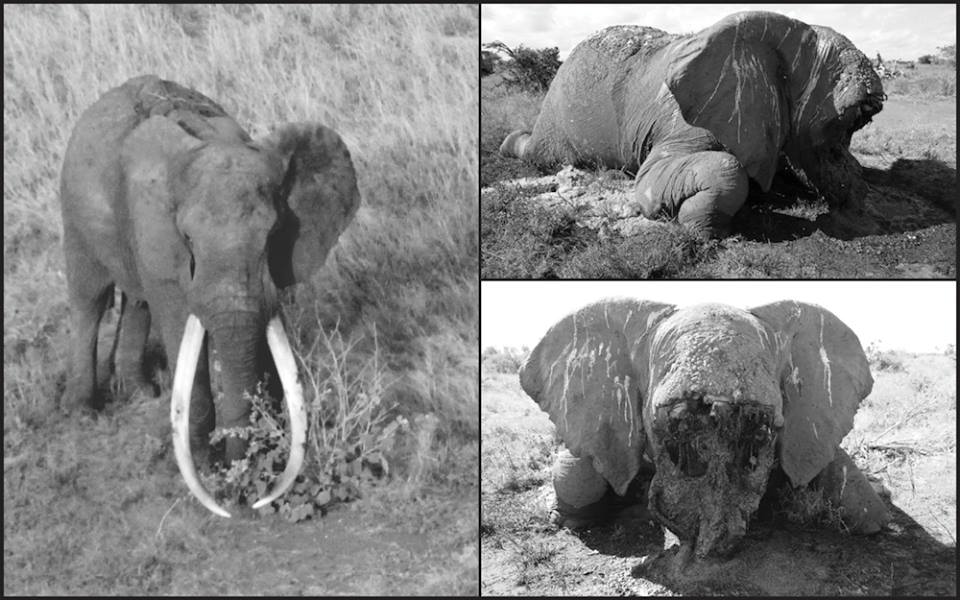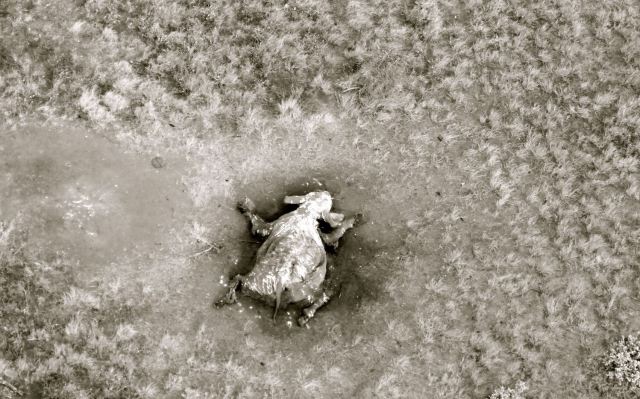Harmonious coexistence with each other and all sentient beings could be the ROI if countries divested some of their military funding into wildlife protection rather than waging war against nations to exploit their natural resources.
World military expenditure in 2012 is estimated to have reached $1.756 trillion with a small number of countries (15 to be exact), rolling out the largest military spending budget. The USA contributes to 39% of the world military budget, followed by China at 9.5%, Russia 5.2%, UK 3.5%, and trailing closely behind, Japan at 3.4%. But what if some of the military resources and or funding can be utilized in protecting our wildlife and making peace with our natural world?
Although traditionally wars are waged for oil and power, in recent years wildlife crime, using sophisticated weapons of mass destruction (WMD) has intensified, making it a serious national security threat. According to a new joint United Nations – INTERPOL report,
“Global environmental crime, possibly worth more than $200 billion annually, is helping finance criminal, militia and terrorist groups and threatening the security and sustainable development of many nations, notably in sub-Saharan Africa.”
This past May Satao, one of the iconic tuskers in Tsavo national park in Kenya (East Africa) was brutally murdered for his most coveted gigantic tusks. It sent shock waves in the conservation world. After evading poachers and surviving some of the worst droughts for 50 years, Satao was strategically targeted for his tusks that will fetch hundreds of thousands of dollars to fund terrorist organizations such as al-Shabab and Somali gangsters.


Images courtesy: Mark Deeble, A Wildlife Film Maker in Africa
Kenya Wildlife Service reports, so far 97 of 38,000 elephants in Kenya have been killed this year. However conservationists claim the true figures are much higher, as substantiated by the recent discovery of 117 elephant carcases in the Masai Mara (a game park in Kenya). They fear if this trend continues African elephants will become extinct within a decade.
Over the past three decades, relentless poaching of wildlife has already wiped out several species of rhinos, and elephants, even as the surviving species are being pushed to the brink of extinction. However wildlife crime has come into scrutiny only in the past decade, and despite the emergence of stringent international laws, criminals are getting away Scot-free, as local laws (seldom enforced) don’t seem to be stern enough to deter poachers and criminal rings.
Worse yet, wildlife crime has been omitted from the United Nations description of “organized crime”. The website states, “Transnational organized crime manifests in many forms, including trafficking in drugs, firearms and even persons. At the same time, organized crime groups exploit human mobility to smuggle migrants and undermine financial systems through money laundering.” No mention of wildlife crime! What about the smuggling of endangered species?
Meantime, more bad news for our non-human species with the sixth mass extinction currently underway, even as human population continues to grow exponentially. According to a recent United Nations report, between 150 and 200 species are becoming extinct every 24 hours, whereas more than 7.2 billion of us are dominating the earth, tipping off our planet’s balance.
More humans = destruction of ecosystems = less natural resources. The over exploitation of ecosystem may temporarily increase material wealth and alleviate poverty, but this can jeopardize future well-being and in some cases even survival of our species.
“We are seeing a disturbing shift in demand for some species from health to wealth – driven by the motivation of displaying new wealth rather than by use in traditional medicine. This is most evident with the use of rhino horn and tiger parts. This is part of a shift from traditional culture-related consumption to conspicuous consumption, which is also affecting many other species pressured by illegal trade. Illegal trade in ivory, however, appears to be largely profit-motivated, as a means of investment for the purpose of generating wealth” said, John E. Scanlon, Secretary-General of CITES.
The reality is, healthy ecosystems are essential for our well-being, as they provide invaluable functions and services including sustaining living resources. According to the Millennium Ecosystem Assessment
“The health of ecosystems is therefore not only essential to the environment, but also important to the existence and development of human society. As components of ecosystems, human beings and their interactions have profound effects on the structure and function of ecosystems which, conversely, often have profound effects on human habitats, human health and even socio-economic development.”
It is simply reprehensible that one country is looting the global commons, harvesting 100 million sharks per year and depleting the global oceans, brutally murdering our elephants and rhinos merely to fuel the insatiable desires for material wealth and status-quo.
The good news is a 2012 ban on shark fin at China’s state functions has cut deep into the market for this traditional but controversial delicacy, and given a major boost to a small but growing effort to take shark fin off the menu at restaurants across the country. Hopefully the Chinese government will now move towards shunning ivory chopsticks and artwork, inspiring the cessation of legal and illegal ivory trade in that country, as many Chinese celebrities like Jackie Chan and Yao Ming are making their voices heard regarding these issues.
The broader question is, do global leaders have the political will to divest some of the military funding and or resources towards ending this ruthless onslaught against our natural world before it’s too late? After all what’s the point in stockpiling WMP when our only home – Planet Earth – is being destroyed? If immediate measures are not taken to address wildlife crimes, our global natural treasures will be obliterated in short order, leaving behind an uninhabitable planet for our children and grandchildren, and threatening the survival of the very species that created the WMD.

